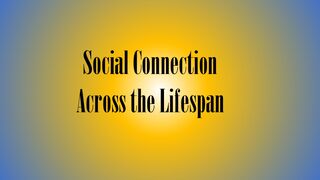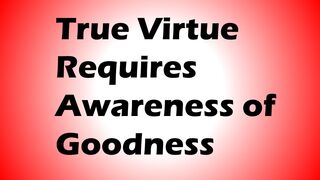Identity
Why Erik Erikson's Psychosocial Theory Is Not Quite Right
Although Erikson postulated virtues at each psychosocial stage, he forgot one.
Posted April 12, 2021 Reviewed by Davia Sills
Key points
- Erik Erikson assigned one virtue to each of his eight psychosocial stages, such as wisdom for Stage 8, Integrity vs. Despair.
- Although Erikson ascribed such important virtues as hope and care to his psychosocial stages, he neglected to discuss the one central virtue.
- The central virtue is justice, seen as the key moral virtue by the ancient Greeks for leading a good and happy life with others in the community.
- In this essay, I situate justice within the Erkisonian framework as a guide for adolescents, mental health professionals, and the general public.

Erik Erikson's psychosocial developmental theory (1950, 1968) was a response to Freud's reductionistic views of the human personality. For Erikson, all people have an essence, including the sexuality emphasized by Freud, which goes well beyond the Freudian pleasure principle to include meaningful social relationships with parents (Stage 1: Trust vs. Mistrust), both parents and siblings (Stage 2: Autonomy vs. Shame and Doubt), family in general (Stage 3: Initiative vs. Guilt), schoolmates and teachers (Stage 4: Industry vs. Inferiority), peers and the larger society (Stage 5: Identity vs. Identity Confusion), a romantic partner (Stage 6: Intimacy vs. Isolation), the next generation (Stage 7: Generativity vs. Stagnation), and eventually a healthy focus on the self (Stage 8: Integrity vs. Despair).
For each of these eight psychosocial stages, the person learns something important to be used throughout life. These insights, influencing behavior, are called virtues.
What Are the Virtues Which Erikson Describes at Each Psychosocial Stage?
In Stage 1, the infant is developing hope as parents treat the child with love. In Stage 2, the toddler is developing their will rather than only following others’ dictates. In Stage 3, the child is developing purpose. In Stage 4, the child develops competence. In Stage 5, the adolescent develops fidelity (faithfulness to a particular worldview) for interacting with others. In Stage 6, the virtue is romantic love. In Stage 7, the virtue is care for the next generation. Finally, in Stage 8, the person develops the virtue of wisdom or knowing the right way to respond to others and the self. The virtues emerge only after the struggle to develop within each stage.

Erikson's Virtues Are Incomplete as Far as What Virtues Are
It is admirable that Erikson described important attributes at each age period throughout life. Yet, by the ancient definitions of virtue, these cannot be true virtues until adolescence. This is the case because in childhood, those “virtues” violate the principles of what constitutes virtues, outlined by Simon (1986): a conscious and deliberate fostering of virtues precisely because the person knows these are good. In adolescence, people develop the genuine capacity for self-reflection and, therefore, the capacity for developing a true sense of virtue.
What Is Missing in Erikson's Psychosocial Theory
The virtue of fidelity, or a committed faithfulness to certain causes and people, which is supposedly the key to sound adolescent development, is not sufficient. This is because fidelity without the concomitant virtue of justice can lead to chaos. Justice is a decided commitment to be fair to others so that one can deliberately live in harmony with other individuals, one’s parents, one’s family, peers, and teachers, and, eventually, with a romantic partner and those in the upcoming next generations. In other words, justice aids in healthy interactions within the psychosocial framework so important to Erikson.
Here is an example of fidelity without a sense of justice: As Mosher (1992) lamented almost three decades ago, adolescents, without the virtue of wisdom (which emerges most strongly in later adulthood), and without a cultivated sense of justice, can be the “shock troops” (p.197) inducing great cruelty on the frontlines of riots, especially when the adolescents lack “civic participation models” (p. 197)—in other words, justice models of how to strive for fairness with harmony. He uses an example of Middle Eastern youth on one side of a political divide throwing stones at soldiers no older than the rock-throwers, on the other side of this divide, who exchange cruelties with one another without solving anything on the societal level. Each side has an ideology, but not necessarily a strategy for forging harmony through deliberate cultivation of justice.

Yet, if we substitute a quest for justice first before the development of fidelity, then fidelity is guided by the principle of entering into harmony with others. The ideological choices likely will be wiser, more peaceful, and more fulfilling for all involved. After all, this is a psycho**social** theory, and what better lays the foundation for social harmony than a commitment first to justice? The self-determining freedom of that to which the adolescent will commit (in Identity vs. Identity Confusion) now might exclude certain choices and point in the direction of healthier choices for all.
As one more point, substituting fidelity with justice in the Identity vs. Identity Confusion stage is on firm philosophical ground. The ancient Greeks, particularly Plato (2015/330 B.C.), placed justice as the one central virtue necessary for a morally good life with others. It is because without this willed and deliberate motivation and action to be in harmony with others, then the other moral virtues, such as courage and temperance, do not develop well.
It is out of fairness that a person musters sufficient courage to right a wrong. It is out of a sense of true justice that a person can be (in fairness to others) temperate to others without the vice of hatred unleashed. Justice keeps people courageous within reason, temperate within reason, and therefore harmonious with all.
Further, Plato’s view of justice is much more nuanced than the modern understanding. Justice for Plato is not just paying what you owe but also deliberately fostering social harmony by exercising your own talents for the community, thus producing that harmony for all.
In the Final Analysis
Fidelity not grounded first in a quest for justice opens the door to rampant subjectivism and relativism. Hitler had a firm and committed ideology, one that distorted justice and led to chaos and widespread tragedy for the entire world. Eriksonian theory, it seems to me, needs to offer more guidance to the developing adolescents by placing justice ahead of fidelity. Justice might not emerge only after identity is established but work within the identity crisis as it develops. Might there be more family, relational, and societal harmony as this justice is first encouraged and cultivated in the teenage years, and then faithfulness to healthy ideologies emerges from there?
References
Erikson, E. (1950). Childhood and society. New York: Norton.
Erikson, E. (1968). Identity: Youth and crisis. New York: Norton.
Mosher, R. (1992). The adolescent as a citizen. In A. Garrod (Ed.), Learning for life: Moral education theory and practice. Westport, CT: Praeger.
Plato, translated by B. Jowett (2015/approximately 330 B.C.). The complete works of Plato/ the republic. Hastings, East Sussex, United Kingdom: Delphi Classics.
Simon, Y. (1986). The definition of moral virtue. New York: Fordham University Press.


